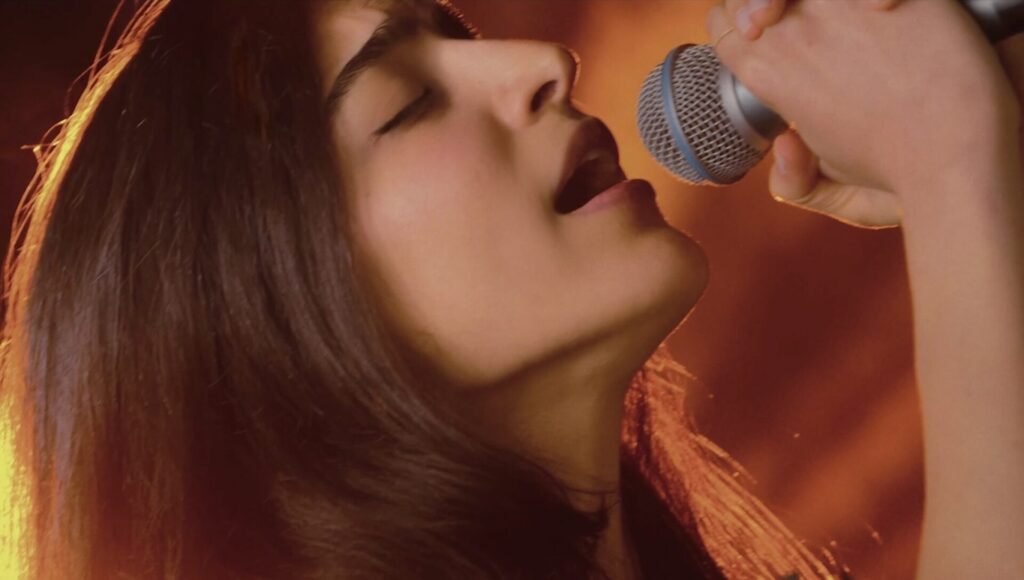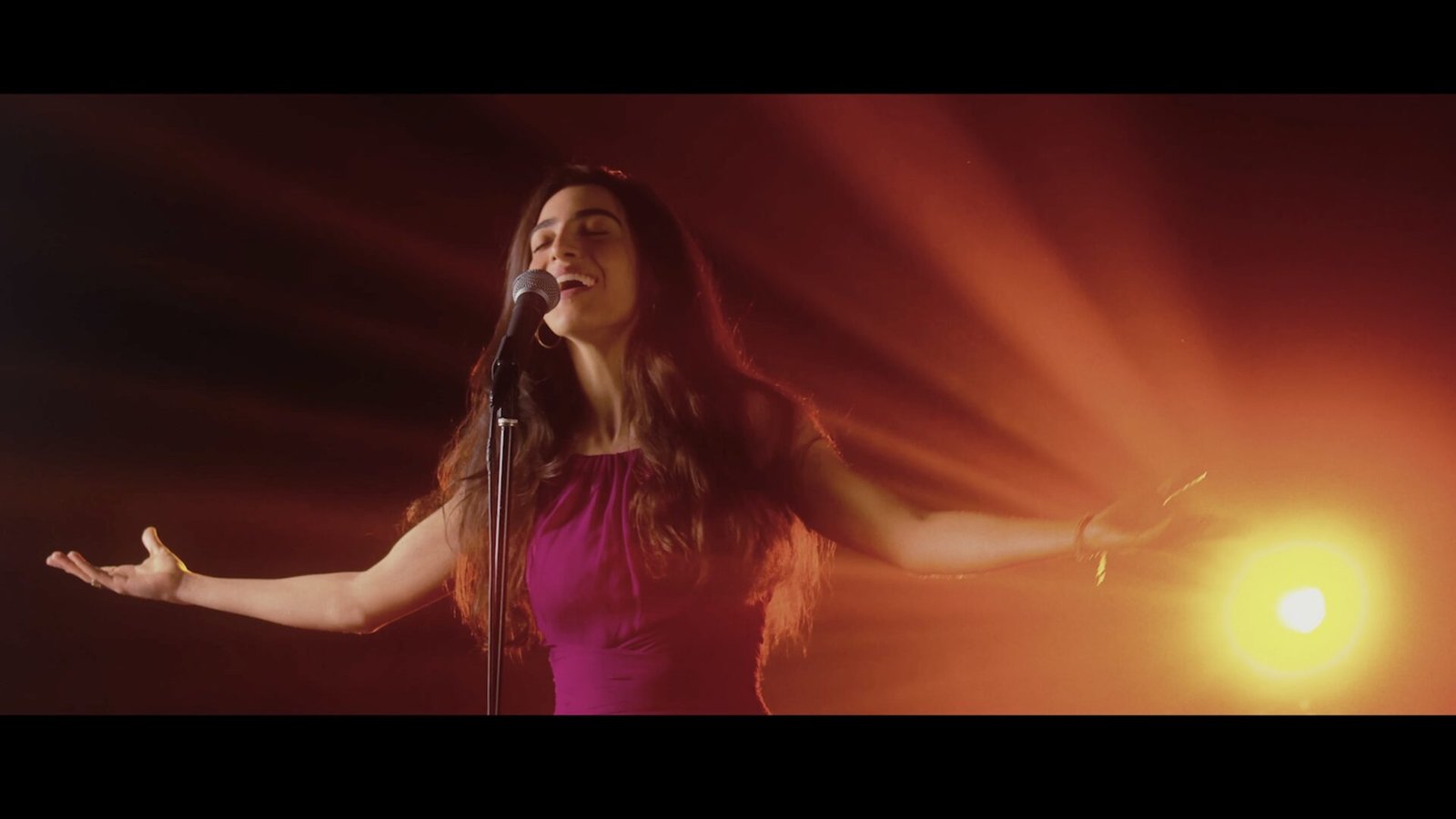Some may say that it’s an artist’s job to capture emotions and transform them into works of art we can all enjoy. With her new single “Lori”, Luciana does exactly that by writing an empowering, fearless song about radical love, In her own words, she says I wrote this song for the people who aren’t afraid of the dark. Check out the exclusive interview below:

1. Can you tell us a bit about where you come from and how it all got started?
LUCIANA ZOGBI: I was born and raised in Brazil and my mother says I learned how to sing before I learned how to speak. I was the annoying child that would “perform” at family gatherings, events and insist that everyone sing and dance along. Despite being in love with music, I never really considered a formal career as a singer, believing it was too unrealistic. When I was in college, I uploaded a singing video onto YouTube thinking only my grandma would watch it, but to my surprise, a bunch of people started watching and encouraging me to continue uploading, which I did. I then started releasing my own original music and here we are!
2. Did you have any formal training or are you self-taught?
LUCIANA ZOGBI: I am mostly self-taught. I enjoy letting my curiosity take the reins and just learn through experimentation and repetition. To be totally honest I don’t do very well with the constraints or expectations that may come with formal education, although I do recognize the importance of it for many artists.
3. Creative work in a studio or home environment, or interaction with a live audience? Which of these two options excites you most, and why?
LUCIANA ZOGBI: As a total introvert, I am most comfortable and happy creating in the studio. The creative process is by far the part of my career that I enjoy the most.
4. What do you feel are the key elements in your music that should resonate with listeners, and how would you personally describe your sound?
LUCIANA ZOGBI: I don’t think there is a specific element that I think should resonate with my listeners. In my experience, People are drawn to different things. Some people resonate more with melodies and hooks and others connect more with lyrics.. etc. I’m always happy to know my song resonated with listeners no matter what the specific element is. As to how I would describe my music, I think it falls under the umbrella of pop music but really it’s a fusion of different genres and styles, including rock, pop, and indie. My primary focus when creating a song is coming up with a strong melody, followed by lyrics that often explore themes of self-discovery, philosophy, and spiritual growth, reflecting my own experiences and observations of the world around me.

5. Do you feel that your music is giving you back just as much fulfillment as the amount of work you are putting into it or are you expecting something more, or different in the future?
LUCIANA ZOGBI:
I feel that my music does provide a significant amount of fulfillment in relation to the work I put into it. The process of creating music, expressing myself, and connecting with listeners is deeply rewarding. Seeing the impact my music has on others and knowing that it can bring joy, comfort, or inspiration is also an immense source of satisfaction. That being said, I’m always looking to grow and evolve. In the future, I may seek different avenues of fulfillment by exploring new genres, collaborating with other artists, or engaging in projects that challenge me creatively. My expectations for my music will likely evolve as I continue to develop as an artist, and I want to always remain open to new opportunities and experiences that may enhance or alter the way I find fulfillment in my work.
6. Do you think is it important for fans of your music to understand the real story and message driving each of your songs, or do you think everyone should be free to interpret your songs in their own personal way?
LUCIANA ZOGBI:
Definitely the latter. I believe art is a co-creative process between the artist and the audience. The artist has their own message and story when they create a song, but when it’s released to the world, it takes on a life of its own. The meaning evolves and changes depending on how people choose to interpret it, and that’s a beautiful thing! I also believe that encouraging personal interpretation ensures that music remains relevant and impactful throughout changing social contexts and personal circumstances.
7. What’s your view on the role and function of music as political, cultural, spiritual, and/or social vehicles – and do you try and affront any of these themes in your work, or are you purely interested in music as an expression of technical artistry, personal narrative, and entertainment?
LUCIANA ZOGBI:
I like to think music is a universal language that can transcend all kinds of borders and boundaries and serve as a very powerful tool for political, cultural and spiritual change. In my work, I strive to strike a balance between addressing these themes (especially cultural & spiritual) and creating music that is also entertaining, well produced and that reflects my own personal experiences.
8. Could you describe your creative processes? How do usually start, and go about shaping ideas into a completed song? Do you usually start with a tune, a beat, or a narrative in your head? And do you collaborate with others in this process?
LUCIANA ZOGBI: It’s all about the melody for me. I’m very drawn to strong melodies and I always start by creating one and letting it guide me through the rest of the creative process. It’s almost as if the melody tells me what the song is about by evoking emotions in me and then I just write the lyrics that correspond to that specific melody.
9. With social media having a heavy impact on our lives and the music business in general, how do you handle criticism, haters, and/or naysayers in general? Is it something you pay attention to, or simply ignore?
LUCIANA ZOGBI: When it comes to handling criticism, I like to differentiate between constructive feedback and haters. Constructive criticism can be valuable in helping me grow as an artist, and actually love receiving it. When it comes to the haters, I’ve become quite good at just ignoring them.
10. What would you consider a successful, proud or significant point in your life or music career so far?
LUCIANA ZOGBI: I think my favorite moments are when I learn that one of my songs resonated with a listener who was going through a difficult time in their life. Knowing that my music could provide solace and support to someone else is immensely gratifying and makes me want to continue making art forever.
KEEP IN TOUCH:
FACEBOOK | INSTAGRAM | TWITTER | SPOTIFY | WEBSITE | YOUTUBE

